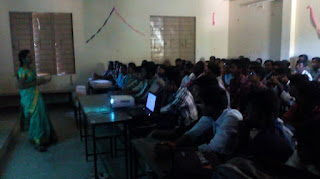How Engaging Families in Service Learning Can Help a Child's Mental Development
Service-learning is an educational approach that combines learning objectives with community service in order to provide a pragmatic, progressive learning experience while meeting societal needs. It's interesting to note that when parents/ guardians and school communities take efforts to nurture a child’s sense of compassion and commitment toward their community, unknowingly they build a better world for the present and for the future. While engaging in important community work, service-minded families are growing children and teenagers who are more likely to become civically engaged, thoughtful, caring, and generous adults for the society they live in. Based on the need to build the community just as the investment we do in young people and children to become active agents in the society- the future of a nations, it is essential to invest in the older generations too to support the process. This understanding of linking both generations gave birth to the ESHKOL community Center, the first regional hub.
The core principles of effective service-learning at ESHKOL Center have potential to enrich family service through more intentional family engagement in planning and reflecting on their service experience. We do this by bringing diverse communities together, to identify social problems, issues in their communities, and come up with action plans to mitigate them as well as develop skills they need to support themselves in the process of healing. In addition, ESHKOL provides a structured focus on learning and development goals in every activity and task that increase the likelihood that the service engagement will have a lasting impact on both those providing service and those being served.
Let's try to ask ourselves why does family service matter today? Research by many scholars admit and suggest that involving parents and their children in service together has important positive outcomes for everyone involved be it, parents, youth, community, schools etc.,
Target audience
|
How it helps
|
Children and youth
|
By cultivating positive
values, such as caring and empathy, and by developing a commitment to service
both now and in the future
|
Parents /guardians/elders/religious leaders
|
By giving them more quality
time with their children and through all the other benefits of volunteering
for adults, including increased interpersonal skills and improved mental and
physical health.
|
Families
|
By increasing their sense of
cohesion, well-being, and connections to the broader community.
|
Other Service
Organizations
|
Schools/ universities and
other can take pride in investing in the future, while develop its own commitments
and goals for the organization
|
ESHKOL Initiative
|
By attracting more
volunteers, increasing volunteer commitments, and bringing new energy to
traditional volunteer opportunities.
|
In doing so, we are expected to face many challenges such as ;
Despite the benefits, ESHKOL and organizations already engaged in service of this caliber, typically face a range of real and perceived obstacles when seeking to engage families in service and service-learning:
Challenge
|
Service-learning
can be adapted and applied to strengthen initiatives as ESHKOL that engages
families in service. Here are some starting points
|
-The most common one is that
families are busy. But by educating families that rather than adding stress,
family service can enhance family life, there is a high possibility of
inspiring them to be a part of this
initiative-which we do.
|
§
Inspire families about the benefits of service. Once families
understand the power of family service, they often become inspired to spend
time serving others.
§
Build interest through short-term, “in-house” projects. Also consider
projects families can do off-site to assist you.
§ Start by making existing service
opportunities more family friendly. For example, offer flexible and
short-term assignments to fit families’ schedules.
|
-Lack of
experience in engaging families in service-learning. Effective
service-learning practices offer approaches that can overcome these
challenges
|
§
Take time to prepare with families for both service and learning as
well as the follow-up
reflection, celebration, and demonstration of learning and impact.
|
-Parents do not know about
available opportunities for family service. Sadly, low-income parents are
much less likely to be aware of opportunities due to the educational and social backgrounds they come from.
|
§ Make time for reflection. The
reflection encourages conversation among family members about values, family
dynamics, and other learning goals.
|
-Age-segregated
programming and difficulty finding appropriate opportunities. However, ESHKOL
has found that engaging families in service can increase current and
future youth participation.
|
§
Demonstrate and celebrate learning and impact. Create a forum for
families to be recognized for their efforts and talk with one another about
what they have accomplished.
|
-Children,
especially young teens may not want to do some things with their parents,
particularly in public. That may affect the kinds of service they will
perform. So, we often strive to make the programs comfortable to both
parties, by creating safer spaces as well as creative activities and tasks
|
§ Engage interested families in
checking priorities and planning the program.
§ Set goals for service and learning for each
task
§ Establish partnerships with international
and local organizations to provide ongoing service-learning opportunities.
|
Hope this provides you with some understanding, why we try to focus on community building as an important way to build sustainable and peaceful communities in different neighborhoods. And, service-learning has become a proven integral part of the initiative and work we do.
If you like to learn more about the work we do, please visit our office or face book page to get in touch with us.





Comments
Post a Comment